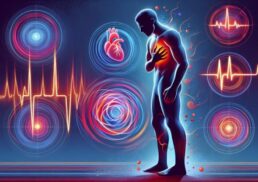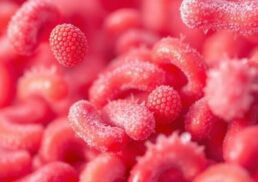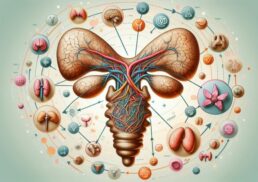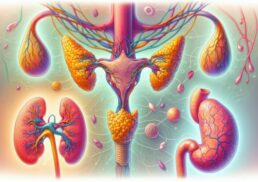Did you know that psylocibin, the naturally occurring psychedelic compound found in certain mushrooms, has shown promising potential for treating various mental health conditions? In this blog post, we will dive into the fascinating world of psylocibin and explore its properties, effects, therapeutic potential, safety considerations, and legal status. Let’s embark on an enlightening journey to uncover the mysteries of this intriguing substance.
Table of Contents
Short Summary
Psilocybin is a psychedelic compound found in some mushrooms which has potential benefits for mental health conditions.
Consumption of psilocybin can vary in effects depending on dosage and characteristics, with risks associated with various ingestion methods.
Clinical trials and research are being conducted globally to investigate the therapeutic benefits of psilocybin for mental health treatment or personal growth.
Understanding Psilocybin
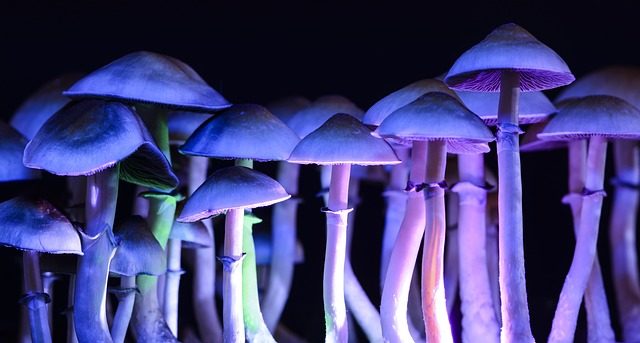
Psilocybin is a naturally occurring psychedelic compound found mainly in certain psilocybe mushrooms, often referred to as “magic mushrooms”. It belongs to the group of classic tryptamine hallucinogens, sharing similar properties with substances like LSD and mescaline. When ingested, psilocybin from psilocybin mushrooms is converted in the body to psilocin, the chemical responsible for its psychoactive properties.
The active components of magic mushrooms, psilocybin and psilocin, have been studied for their potential benefits in treating various mental health disorders.
Natural Sources of Psilocybin
Magic mushrooms containing psilocybin can be found in many parts of the world, and their appearance varies depending on the species. It’s important to note that the amount of psilocybin and psilocin in magic mushrooms can vary greatly, so caution should be exercised when consuming them. In Australia, the most prevalent types of magic mushrooms are golden tops, blue meanies, and liberty caps. However, the abuse of these mushrooms for their psychoactive effects can lead to negative consequences.
Identifying magic mushrooms can prove difficult. They are often seen in dried form, and have a long and slender stem with whitish-gray coloration. On top of that, it has light brown or white caps in the center. It is crucial to be cautious when seeking out magic mushrooms, as mistakenly consuming poisonous mushrooms can have dire consequences. The mental health services administration and other organizations are interested in the potential benefits of psilocybin, a compound found in magic mushrooms, for treating mental health conditions.
As with any naturally occurring substance, the amount of psilocybin and psilocin in magic mushrooms can vary greatly. This variability can make it difficult for users to determine the appropriate dosage, which may lead to an increased risk of negative experiences or adverse effects. It is essential to be aware of the potential risks associated with consuming magic mushrooms and to exercise caution when doing so.
Synthetic Psilocybin
Synthetic psilocybin is another form of this intriguing compound. It is presented as a white crystalline powder that can be processed into tablets or capsules or dissolved in water. Clinical research is being conducted to explore its potential benefits for mental health conditions. The average half-life of psilocybin is estimated to be between one and two hours. It generally takes five to six half-lives for a substance to be completely eliminated from the system. Notably, the standard urine drug screening for employment does not detect psilocybin.
The development of synthetic psilocybin allows for more precise control over dosage and purity, which could potentially lead to safer and more effective therapeutic applications. However, it is crucial to note that further research is needed to fully understand the potential benefits and risks associated with synthetic psilocybin use.
Consumption Methods and Effects
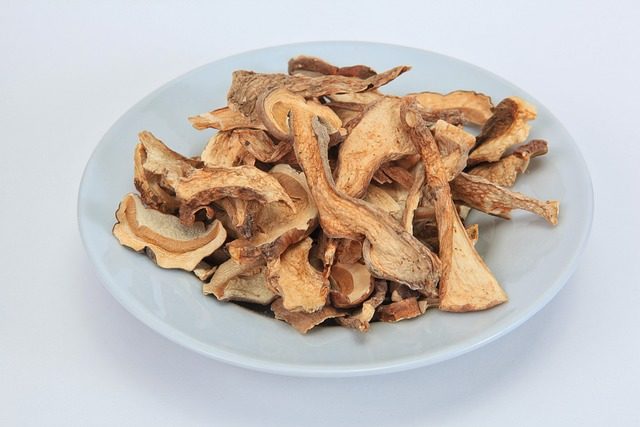
There are various methods of consuming psilocybin, each with its own unique effects on the mind and body. Ingesting magic mushrooms can result in altered and unusual perceptions, with the effects taking 20 to 40 minutes to manifest and potentially lasting up to 6 hours.
Magic mushrooms can have different effects based on multiple factors. These include dosage, age, weight, personality, emotional state, environment, and history of mental illness of the individual taking them.
Ingestion Methods
Magic mushrooms can be ingested in various ways, including fresh, dried, brewed into a tea, or mixed with other substances such as cannabis or tobacco. Choosing the appropriate ingestion method depends on personal preferences and the desired effects. It is important to note that injecting magic mushrooms can result in serious harms, including septic shock and multi-system organ failure. Therefore, injection should be avoided.
When consuming magic mushrooms, it is crucial to exercise caution and be aware of the potential risks associated with each ingestion method. For example, mixing psilocybin with other substances can lead to unpredictable effects and increased risks. It is always best to start with a low dosage and gradually increase it as needed, while being mindful of the potential effects and risks associated with psilocybin use.
Immediate Effects
The immediate effects of psilocybin can be both fascinating and disorienting. Users often experience hallucinations, altered perceptions, and changes in mood. Physical effects may include alterations in the perception of time and space, intense changes in mood and feeling, increased heart rate and blood pressure, dry mouth, and dilated pupils. Some users may also experience muscle weakness, loss of coordination, drowsiness, and dizziness.
The psychological effects of psilocybin can be intense and may include heightened emotions, altered states of consciousness, and modifications in the perception of time and space. However, it is essential to be aware of the potential risks associated with consuming large amounts or strong batches of magic mushrooms. These risks may include hallucinations, confusion, anxiety, paranoia, panic attacks, and even psychosis, particularly in individuals with pre-existing mental health conditions.
Long-term Effects
While the immediate effects of psilocybin can be captivating, it is essential to consider the potential long-term effects of its use. Research on the long-term effects of psilocybin is limited, but some studies suggest that it may have both positive and negative outcomes. For example, some users report sustained personal meaning and psychological growth after psilocybin use, while others may experience lingering hallucinations or visual disturbances known as hallucinogen persisting perception disorder (HPPD).
It is crucial for individuals considering psilocybin use to weigh the potential benefits against the possible risks. As with any substance, responsible use and awareness of one’s own mental and physical state are key to minimizing potential adverse effects. Consulting with a healthcare professional before using psilocybin, especially for individuals with pre-existing mental health conditions, is always recommended.
For more info, please visit Psilocybin (magic mushrooms): What it is, effects and risks
Therapeutic Potential of Psilocybin
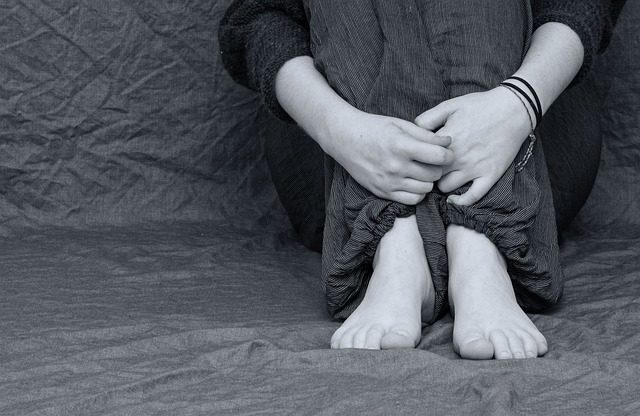
The potential therapeutic applications of psilocybin for various mental health conditions have garnered significant interest in recent years. Research has explored its potential benefits in treating disorders such as anxiety, depression, obsessive-compulsive disorder, and problematic substance use.
While the scientific understanding of psilocybin’s therapeutic potential is still in its infancy, the results of these studies are promising and warrant further investigation.
Depression
Psilocybin has shown potential as a treatment for depression, with some studies suggesting that it may help reduce depressive symptoms and suicidal thoughts. In a study conducted by Moreno and colleagues, psilocybin was found to have significant benefits in reducing symptoms of obsessive-compulsive disorder (OCD). Additionally, research on healthy volunteers has shown that psilocybin sessions are associated with significantly increased ratings of positive attitudes, mood, social effects, and behavior compared to methylphenidate sessions.
These findings suggest that psilocybin may have a role in treating depression and related mental health conditions. However, it is important to note that further research is needed to fully understand the potential benefits and risks of psilocybin use in depression treatment. As with any experimental treatment, consulting with a healthcare professional before using psilocybin for depression is essential.
Anxiety Disorders
Anxiety disorders are a group of mental health conditions characterized by feelings of fear, worry, and unease. Psilocybin has been studied for its potential to reduce anxiety, particularly in patients with cancer. In one study, patients who received psilocybin experienced significant improvements in mood and reduced anxiety at 1 and 3 months post-treatment compared to those who received a control substance.
These results suggest that psilocybin may have potential as a treatment for anxiety disorders. However, as with depression treatment, further research is needed to fully understand the potential benefits and risks of psilocybin use in anxiety disorder treatment. Consulting with a healthcare professional before using psilocybin for anxiety is always recommended.
Addiction Treatment
In addition to its potential benefits for depression and anxiety disorders, psilocybin has also shown promise as a treatment for addiction, including alcohol and tobacco dependence. Studies have found that patients who received psilocybin experienced significant reductions in alcohol and tobacco use, suggesting its potential as a novel treatment for addiction.
While these findings are encouraging, more research is needed to fully understand the potential benefits and risks of using psilocybin as a treatment for addiction. As with any experimental treatment, consulting with a healthcare professional before using psilocybin for addiction treatment is essential.
Safety Considerations and Risks
When considering the use of psilocybin for mental health treatment or personal growth, it is essential to be aware of the safety considerations and risks associated with its use. While research has shown that psilocybin has an acceptable safety profile in clinical studies, it is important to recognize that individual experiences may vary, and certain risks may be associated with its use.
It is important to be aware of the potential risks and to take appropriate precautions when using pcs.
Identifying Poisonous Mushrooms
One of the most significant risks associated with the consumption of magic mushrooms is the potential for accidental ingestion of poisonous mushrooms. To avoid this, it is essential to learn how to properly identify magic mushrooms and distinguish them from poisonous varieties. For example, fly agaric mushrooms are a poisonous species that contain psychoactive chemicals but can cause severe adverse effects, such as twitching, drooling, sweating, dizziness, vomiting, and delirium.
If you suspect that you or someone else may have consumed a poisonous mushroom, it is crucial not to wait for symptoms to occur but to take immediate action. Contact your local poison control center or seek medical attention immediately.
Mental Health Risks
In addition to the potential for poisonous mushroom ingestion, there are also mental health risks associated with psilocybin use. Some users may experience “bad trips,” characterized by fear, agitation, confusion, delirium, psychosis, and syndromes that resemble schizophrenia. These negative experiences can be distressing and may have long-term psychological consequences.
Individuals with pre-existing mental health conditions may be more susceptible to these adverse effects and should exercise caution when considering psilocybin use. It is always best to consult with a healthcare professional before using psilocybin, especially for individuals with a history of mental illness.
Interactions with Other Drugs
Another important safety consideration when using psilocybin is the potential for interactions with other drugs, both prescription and recreational. While specific information about these interactions may be limited, it is essential to consult with a healthcare professional or pharmacist for personalized advice regarding potential interactions between psilocybin and other drugs.
Being aware of potential drug interactions and discussing them with a healthcare professional can help minimize the risks associated with psilocybin use. Responsible use and awareness of one’s own mental and physical state are key to reducing potential adverse effects.
Legal Status and Access to Psilocybin
The legal status of psilocybin and access to it for research and therapeutic purposes varies across the globe. In some jurisdictions, recent changes in legislation have allowed for the use of psilocybin in clinical trials and research. In others, it remains a controlled substance with limited access.
Global Legal Status
Psilocybin is classified as a Schedule I drug in the United States, indicating its high potential for misuse and lack of currently accepted medical use in treatment. However, certain jurisdictions, such as Colorado in the US, have legalized the use of psilocybin for specific purposes.
In Canada, activities involving magic mushrooms, psilocybin, and psilocin are prohibited, unless explicitly authorized by Health Canada. The global legal status of psilocybin is varied and constantly evolving. It is essential for individuals considering psilocybin use to be aware of the legal regulations in their specific location and to adhere to those regulations.
Clinical Trials and Research
Clinical trials and research involving psilocybin are ongoing in various institutions and organizations around the world. Notable studies include those conducted by The Johns Hopkins Center for Psychedelic and Consciousness Research, a study on psilocybin therapy for depression and anxiety at UCSF, and a clinical trial on psilocybin for treatment-resistant depression in Colorado.
Additionally, there are ongoing trials exploring the effects of psilocybin, a component of hallucinogenic drugs, on demoralization and drug abuse, as well as other forms of substance misuse, including drug use.
For individuals interested in participating in clinical trials involving psilocybin or seeking access to it for therapeutic purposes, it is essential to consult with a healthcare professional and research the specific pathways available in their location.
Summary
In conclusion, psilocybin, a naturally occurring psychedelic compound found in certain mushrooms, holds significant potential for the treatment of various mental health conditions. However, it is essential for individuals considering its use to be aware of the potential risks, safety considerations, and legal regulations surrounding psilocybin. As research continues to uncover the mysteries of this intriguing substance, it is our hope that a deeper understanding of its therapeutic potential will emerge, offering new avenues for mental health treatment and personal growth.
Frequently Asked Questions
What is psilocybin good for?
Psilocybin has shown promising results as a potential treatment for depression, anxiety, OCD, addiction, PTSD, end-of-life distress, and substance use disorders. Studies suggest that its anti-depressant and anti-anxiety effects can last for several months and may also be helpful in treating terminal illnesses.
What are the benefits of psychedelics?
Recent studies suggest that psychedelics can help treat mental health conditions and may have enduring effects on mood and well-being. Clinical research also indicates that psychedelics could allow long-term changes in behavioural, learning and sensory systems, potentially leading to lowered anxiety and improved mood.
However, more research needs to be done to establish how the drugs remodel brain connections.
What are the potential risks associated with psilocybin use?
Using psilocybin carries potential risks such as “bad trips,” long-term psychological consequences, and drug interactions. It is essential to consult a healthcare professional before using psilocybin, especially for those with a mental health history.
Psychedelic drugs, such as psilocybin, can be powerful tools for personal growth and exploration. However, it is important to be aware of the potential risks associated with their use. Taking the time to take the time.
How can I identify magic mushrooms and avoid consuming poisonous mushrooms?
To identify magic mushrooms and avoid consuming poisonous varieties, it is important to learn how to distinguish between them. In case of mushroom poisoning, contact your local poison control center or seek medical attention immediately.
Is psilocybin legal for use in clinical trials and research?
Psilocybin’s legal status varies globally, and recent changes in legislation have allowed for the use of it in clinical trials and research in certain jurisdictions.
In the United States, psilocybin is classified as a Schedule I drug, meaning it has a high potential for abuse and no accepted medical use. However, recent changes in legislation have allowed for the use of it in clinical trials.




